Kathleen C Thomas Lab
Kathleen C Thomas Lab
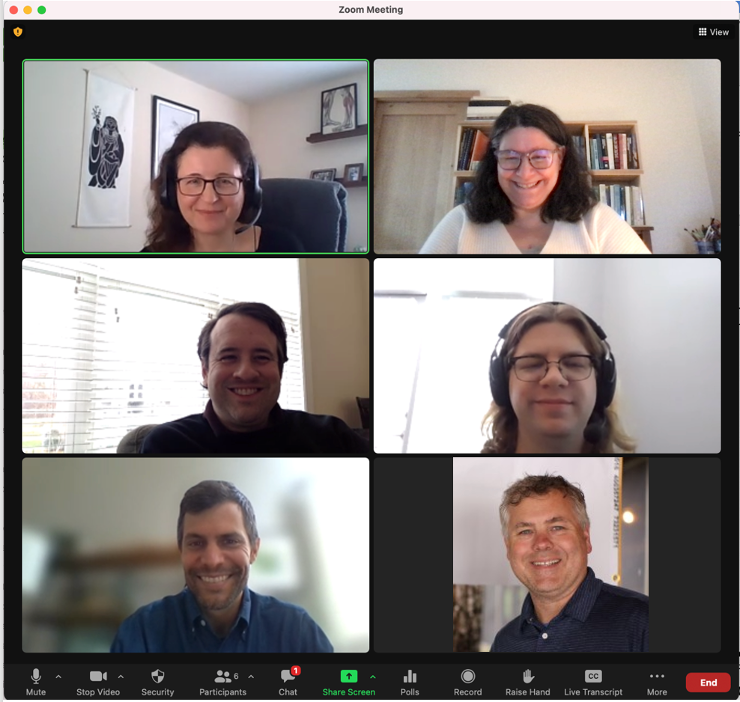
Welcome to our website! We conduct research in behavioral economics to improve access to care, quality of care and outcomes for adults and children with mental health conditions. Our work is stakeholder engaged and uses a variety of data sources: primary and secondary data, electronic health records, claims, and other public records with input from stakeholders using interviews, focus groups and discrete choice experiments. Explore our projects and publications below. Please feel free to contact us for further information.
Current Research Projects (Total direct cost):
Principal Investigator:
| 2022-2025 | Improving the health of parents and their adolescent and transition- age youth with IDD, Patient-Centered Outcomes Research Institute (PCORI), Duration: 06/01/22-08/31/25, Amount: $3,205,049 |
| 2022 | Linking parent priorities, baseline data and partnerships for action: Supporting child mental health in the Robeson Lumbee community, Kenan Trust and the UNC Health Foundation for Whole Community Connection, Duration: 01/01/22-06/30/23, Amount: $45,000 |
| 2020-2021 | Stakeholder advisory committee, National Institutes of Health Clinical and Translational Science Award (CTSA) program at UNC Chapel Hill (NCTraCS) Duration: 2/1/20-1/31/21, Amount: $2,000 |
| 2017-2020 | Communication access in healthcare settings for deaf ASL-speaking North Carolinians, North Carolina Division of Services for the Deaf and Hard of Hearing (NCDSDHH), Duration: 12/1/17-11/30/20, Amount: $27,273 |
Co-Investigator:
| 2023 |
Medicaid Behavioral Health Provider Survey, North Carolina Health and Human Services (NCDHHS), Principal Investigator: Mark Holmes, Duration: 07/01/23-06/30/24, Amount: $414,466
|
| 2022-2025 |
Improving the outcomes of adolescents with ADHD via a pre-visit question prompt list/video intervention: a randomized controlled feasibility trial, National Institute of Mental Health (NIMH), Principal Investigator: Betsy Sleath, Duration: 12/15/22-11/30/25, Amount: $450,000
|
| 2022-2026 |
Unpacking Disparities in Opioid Use Disorder Treatment Quality, National Institute of Drug Abuse (NIDA), Principal Investigator: Marisa Domino, Duration: 9/30/22-7/31/26, Amount: $ $3,191,202
|
| 2022-2023 |
Youth and Family Behavioral Health Service Priorities: Identifying Outcomes that Matter, Patient-Centered Outcomes Research Institute (PCORI), Co-Principal Investigators: Millie Sweeney and Genevieve Graaf, Duration: 9/1/22-8/31/23, Amount: $90,882
|
Recent Publications
Hughes PM, McGrath RE, Thomas KC. Simulating the Impact of Psychologist Prescribing Authority Policies on Unmet Need for Mental Health Care. Professional Psychology: Research and Practice (in press)
Hughes PM, Easterly C, Thomas KC, Shea CM, Domino M. North Carolina Medicaid System Perspectives on Substance Use Disorder Treatment Policy Changes during the COVID-19 Pandemic, Journal of Addition Medicine, (in press)
Schweiger J, Carpenter D, Thomas KC, Garcia N, Adjei A, Lee C, Tudor G, Sleath BL. The Development of a Video Intervention to Motivate Teens to Ask Providers Questions About ADHD Cogent Psychology, Cogent Psychology, (in press)
Hughes PM, Annis IE, McGrath R, Thomas KC. Psychotropic Prescribing Across Professions: 2016-2019, Psychiatric Services (in press)
Graaf G, Hughes PM, deJong NA, Thomas KC. Family support services and reported parent coping among caregivers of children with emotional, behavioral, or developmental disorders. Journal of Developmental & Behavioral Pediatrics (in press)
Annis IE, DeJong NA, Christian RB, Davis SA, Hughes PM, Thomas KC. Neighborhood Context, Children’s Health and Healthcare Outcomes: A Comprehensive Analysis of National Survey Data, Health Affairs Scholar (in press)
Hynes DM, Govier DJ, Niederhausen M, Tuepker A, Laliberte AZ, McCready H, Hickok A, Rowneki M, Waller D, Cordasco KM, Singer SJ, McDonald KM, Slatore CG, Thomas KC, Maciejewski M, Battaglia C, Perla L. Understanding Care Coordination for Veterans with Complex Care Needs: Protocol of a Multiple-Methods Study to Build Evidence for an Effectiveness and Implementation Study, Frontiers in Health Services, 2023, August 3(0)
Hughes PM, Graaf G, Thomas KC. The NSCH Patient-Centered Medical Home Scale: A Measurement History, Critique, and Commentary. Children’s Health Care (in press)
Hughes PM, Graaf G, deJong NA, Thomas KC. Emotional Support among Parents of Children with Adverse Childhood Experiences. Journal of Pediatric Health Care (in press)
Wright M, Thomas KC, Carpenter DM, Lee C, Coyne I, Garcia N, Adjei A, Sleath BL. Co-designing a website with and for youth, so they can better manage their health. Patient Education and Counseling, May 9, 2023.
Hughes PM, McGrath R, Phillips D, Thomas KC. Examining Psychologist Prescriptive Authority as a Cost-Effective Strategy for Reducing Suicide Rates, Professional Psychology: Research and Practice, 2023 54(4), 284–294.
Hughes PM, Annis IE, Christian RB, deJong NA, Davis SA, Thomas KC. Factors Associated with Substance Use Disorder among High-Need Adolescent and young Adults in North Carolina, North Carolina Medical Journal, (in press)

Kathleen C Thomas, PhD, MPH highlighted in UNC Eshelman School of Pharmacy’s Impact Report 2022-2023.
… she aims to improve access to, and quality of, mental health services. Her work has led to state and federal policy change and intervention uptake to accomplish those goals. December, 2023
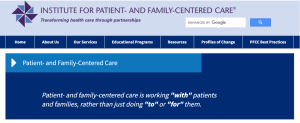
Invited expert. PCORI investigators to update PCORI’s Engagement Rubric, a model for researchers and stakeholders to form meaningful partnerships in research hosted by the Institute for Patient- and Family-Centered Care (IPFCC), May 2022.
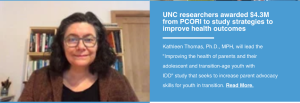
Kathleen C Thomas, Ph.D., MPH of the UNC Eshelman School of Pharmacy will lead a comparative effectiveness research study to improve health outcomes for youth with intellectual and developmental disability (IDD) and their parents through two-parent peer-group interventions, one parent-directed and one adding advocacy skills training, December, 2021.
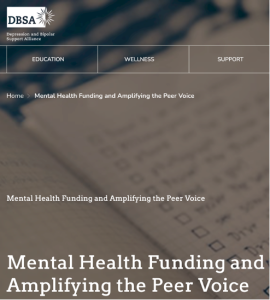
Workgroup Member, Amplifying Peer Voices in Mood Disorders Research: A Convening to Advance Peer Priorities and Partnerships, jointly hosted by the Institute of Patient-and Family-Centered Care and the Depression and Bipolar Support Alliance, June, 2021
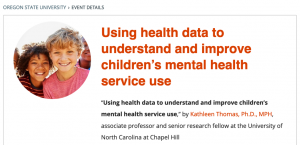
Thomas KC. Using Health Data to Understand and Improve Children’s Mental Health Service Use, invited presentation, Oregon State University, College of Public Health and Human Sciences, February 21, 2020.
Faculty
 Robert B. Christian, MD. Assistant Professor of Psychiatry and Pediatrics. As a physician with training in General Pediatrics and Adult/Child and Adolescent Psychiatry, and as someone who has spent much of his clinical time working in interdisciplinary teams, I hold strongly to the notion that any one lens is far too narrow a tool through which to view patients. This is especially important when it comes to working with children, adolescents, and adults who have both neuro-developmental disorders such as Autism Spectrum Disorders, Fragile X, or Angelman Syndrome and severe behavioral/emotional/psychiatric challenges such as anxiety, aggression, or self-injury. In my role as director of the Behavioral Medicine Clinic at The Carolina Institute for Developmental Disabilities (CIDD) in the UNC School of Medicine, I lead a team to evaluate and address these challenges. There is a clear need for effectiveness research regarding the limited tools we do have in this realm and this need drives much of my work.
Robert B. Christian, MD. Assistant Professor of Psychiatry and Pediatrics. As a physician with training in General Pediatrics and Adult/Child and Adolescent Psychiatry, and as someone who has spent much of his clinical time working in interdisciplinary teams, I hold strongly to the notion that any one lens is far too narrow a tool through which to view patients. This is especially important when it comes to working with children, adolescents, and adults who have both neuro-developmental disorders such as Autism Spectrum Disorders, Fragile X, or Angelman Syndrome and severe behavioral/emotional/psychiatric challenges such as anxiety, aggression, or self-injury. In my role as director of the Behavioral Medicine Clinic at The Carolina Institute for Developmental Disabilities (CIDD) in the UNC School of Medicine, I lead a team to evaluate and address these challenges. There is a clear need for effectiveness research regarding the limited tools we do have in this realm and this need drives much of my work.
 Neal deJong, MD, MPH Associate Professor, General Pediatrics and Adolescent Medicine. Dr. deJong is a pediatrician who specializes in care of children with multiple complex medical needs. His research focuses on the care these children and families receive as they balance between their primary care and specialty care physicians, such as effective long-term plans of care for children with chronic conditions. Currently, Dr. deJong’s research is focused on children with inflammatory bowel disease and reducing the number of hospital and emergency room visits associated with chronic disease.
Neal deJong, MD, MPH Associate Professor, General Pediatrics and Adolescent Medicine. Dr. deJong is a pediatrician who specializes in care of children with multiple complex medical needs. His research focuses on the care these children and families receive as they balance between their primary care and specialty care physicians, such as effective long-term plans of care for children with chronic conditions. Currently, Dr. deJong’s research is focused on children with inflammatory bowel disease and reducing the number of hospital and emergency room visits associated with chronic disease.
 Scott Davis, PhD. Research Assistant Professor, Pharmaceutical Outcomes and Policy. My long-term career goal is to identify optimal methods to increase patient self-efficacy in chronic health condition management, for example to promote successful medical visits for autistic adults. I plan to identify evidence-based methods that can be implemented and disseminated in different chronic conditions. My current focus is on engaging autistic adults in participatory research to inform interventions, learning the perspectives of the target population to adapt interventions appropriately, and testing the effectiveness of interventions for autistic adults in clinical trials.
Scott Davis, PhD. Research Assistant Professor, Pharmaceutical Outcomes and Policy. My long-term career goal is to identify optimal methods to increase patient self-efficacy in chronic health condition management, for example to promote successful medical visits for autistic adults. I plan to identify evidence-based methods that can be implemented and disseminated in different chronic conditions. My current focus is on engaging autistic adults in participatory research to inform interventions, learning the perspectives of the target population to adapt interventions appropriately, and testing the effectiveness of interventions for autistic adults in clinical trials.
 Khalilah Robinson Johnson, PhD, MS, OTR/L. Assistant Professor Division of Occupational Science and Occupational Therapy. Dr. Johnson has a demonstrated record of commitment as a service provider, social and disability justice advocate, occupational science and occupational therapy educator, and researcher working with adults with IDD. Her research interests are a direct result of 15 years of clinical experiences as a registered and licensed occupational therapist. As a health sciences researcher, she has used mixed methods approaches with adults with IDD and service providers from minoritized backgrounds, engaged in community-based participatory research with adults with disabilities in under-resourced communities, and performed secondary data analysis of IDD related healthcare data. Her published work focused on racism and racial equity in intellectual and developmental disabilities research and practice, the sociocultural experiences of disability of people from racially minoritized backgrounds, institutionalization of people with IDD, and occupational therapy service provision. Dr. Johnson is the recipient of a Robert Wood Johnson Health Equity Scholar Award where Dr. Thomas serves as primary mentor.
Khalilah Robinson Johnson, PhD, MS, OTR/L. Assistant Professor Division of Occupational Science and Occupational Therapy. Dr. Johnson has a demonstrated record of commitment as a service provider, social and disability justice advocate, occupational science and occupational therapy educator, and researcher working with adults with IDD. Her research interests are a direct result of 15 years of clinical experiences as a registered and licensed occupational therapist. As a health sciences researcher, she has used mixed methods approaches with adults with IDD and service providers from minoritized backgrounds, engaged in community-based participatory research with adults with disabilities in under-resourced communities, and performed secondary data analysis of IDD related healthcare data. Her published work focused on racism and racial equity in intellectual and developmental disabilities research and practice, the sociocultural experiences of disability of people from racially minoritized backgrounds, institutionalization of people with IDD, and occupational therapy service provision. Dr. Johnson is the recipient of a Robert Wood Johnson Health Equity Scholar Award where Dr. Thomas serves as primary mentor.
Research Specialists
 Izabela Annis, MS. Senior Data Analyst, Pharmaceutical Outcomes and Policy. I am involved in studies that: (1) investigate comparative treatment effects on patient centered outcomes, (2) aim to develop new and improve existing machine learning methods that predict infrequent health outcomes and individual treatment effects, (2) assess the effectiveness of targeted interventions in vulnerable and unserved populations. I work with large administrative databases: Medicare claims, electronic health records sourced from UNC Health Care system, Medicaid claims, as well as many other cross-disciplinary research resource files such as GIS files, US Census files, drug databases, and data from national (MEPS, NHANES, etc.) and local surveys. I also participate in training PhD students and departmental fellows, helping them with statistical and programming problems. I enjoy working with data, solving complex programming problems and applying a variety of statistical methods to answer research questions.
Izabela Annis, MS. Senior Data Analyst, Pharmaceutical Outcomes and Policy. I am involved in studies that: (1) investigate comparative treatment effects on patient centered outcomes, (2) aim to develop new and improve existing machine learning methods that predict infrequent health outcomes and individual treatment effects, (2) assess the effectiveness of targeted interventions in vulnerable and unserved populations. I work with large administrative databases: Medicare claims, electronic health records sourced from UNC Health Care system, Medicaid claims, as well as many other cross-disciplinary research resource files such as GIS files, US Census files, drug databases, and data from national (MEPS, NHANES, etc.) and local surveys. I also participate in training PhD students and departmental fellows, helping them with statistical and programming problems. I enjoy working with data, solving complex programming problems and applying a variety of statistical methods to answer research questions.
 Meriel Shire, MPH, MSW, Project Manager and public Health professional dedicated to improving maternal and child health outcomes through equity-focused systems level change and evidence-based population health approaches. Collaborative relationship-builder experienced in technical assistance delivery, project management, and continuous quality improvement in clinical and community settings.
Meriel Shire, MPH, MSW, Project Manager and public Health professional dedicated to improving maternal and child health outcomes through equity-focused systems level change and evidence-based population health approaches. Collaborative relationship-builder experienced in technical assistance delivery, project management, and continuous quality improvement in clinical and community settings.
 Kate Slate, MA. Project Coordinator. Kate Slate has a master’s degree from the UNC Hussman School of Journalism and Media where she wrote about children who have autism spectrum disorder and roadblocks families may encounter along the way in terms of a diagnosis and care. At the Eshelman School of Pharmacy, Kate works to recruit study participants and convey our work through our website.
Kate Slate, MA. Project Coordinator. Kate Slate has a master’s degree from the UNC Hussman School of Journalism and Media where she wrote about children who have autism spectrum disorder and roadblocks families may encounter along the way in terms of a diagnosis and care. At the Eshelman School of Pharmacy, Kate works to recruit study participants and convey our work through our website.
 Avery White, Project Coordinator. Avery has a BA in psychology from UNC where he became interested in research. He also established a tutoring program for high school students who found distance-learning during the covid pandemic difficult. At the Eshelman School of Pharmacy, Avery works to recruit study participants, builds online surveys, works through technical challenges to collect novel smartphone data, and codes data for mixed methods analyses.
Avery White, Project Coordinator. Avery has a BA in psychology from UNC where he became interested in research. He also established a tutoring program for high school students who found distance-learning during the covid pandemic difficult. At the Eshelman School of Pharmacy, Avery works to recruit study participants, builds online surveys, works through technical challenges to collect novel smartphone data, and codes data for mixed methods analyses.
Graduate Students and Pre-Doctoral Fellows

Phillip Hughes, MS. Phillip Hughes, MS, is a PhD student in the Division of Pharmaceutical Outcomes and Policy at the UNC Eshelman School of Pharmacy. His research interests center around mental health services and substance use treatment with a focus on improving access to care through policy. In particular, his current research examines how scope-of-practice issues, such as prescriptive authority, impact the availability and quality of treatment services. Secondary lines of research include outcomes of state-level opioid policies and how the prevalence of adverse childhood experiences (a risk factor for mental health and substance use disorders) have changed over time. To date, he has worked on projects covering a breadth of topics, including studies on opioid policies, insurance networks, adverse childhood experiences, and psychotropic polypharmacy. These projects focus on a wide range of populations, such as people with disabilities, lgbtq+ individuals, and children with special healthcare needs. His overarching goal is to improve access to quality, equitable mental health care and substance use treatment services.

Andrea Goodwin, MA, MA. Andrea “Andi” Goodwin is a PhD candidate in Sociology at the University of North Carolina at Chapel Hill. Andi works to identify the association between social stratification and health disparities across the life course. More specifically, she is interested in the relationship between race/ethnicity, socioeconomic status, and gender and caregiving in the US context. Her dissertation research focuses on the physiological and mental health of mid-life US women who serve as informal caregivers to elderly adults, possibly while simultaneously caring for dependent children, and the mitigating effects of health services and social support. Prior to beginning her doctoral studies, she earned a Master of Arts in Sociology at UNC-Chapel Hill in 2020 and Morgan State University in 2011, as well as a Bachelor of Science and Master of Science in Exercise and Sport Sciences from the University of Florida in 2001 and 2003, respectively.

Amanda Collins is a PhD student in the department of Epidemiology at the UNC Chapel Hill Gillings School of Public Health. Her primary research interests are focused on improving mental health and access to health services among people with disabilities. She is especially interested in expanding access to mental and occupational health services for people with autism spectrum disorders (ASD), conducting social epidemiological research that focuses on people with autism as a marginalized group, rather than autism as an adverse health outcome, and keeping the interests of the autistic community at the forefront of ASD-related research. Her dissertation research centers around better understanding predictors of poor mental health and barriers to health care access among adults with ASD. Prior to her graduate work at UNC, Amanda earned an MSPH in Epidemiology and a BS in Public Health at the University of South Carolina, and she worked as a biostatistician for Prisma Health Heart Hospital.

